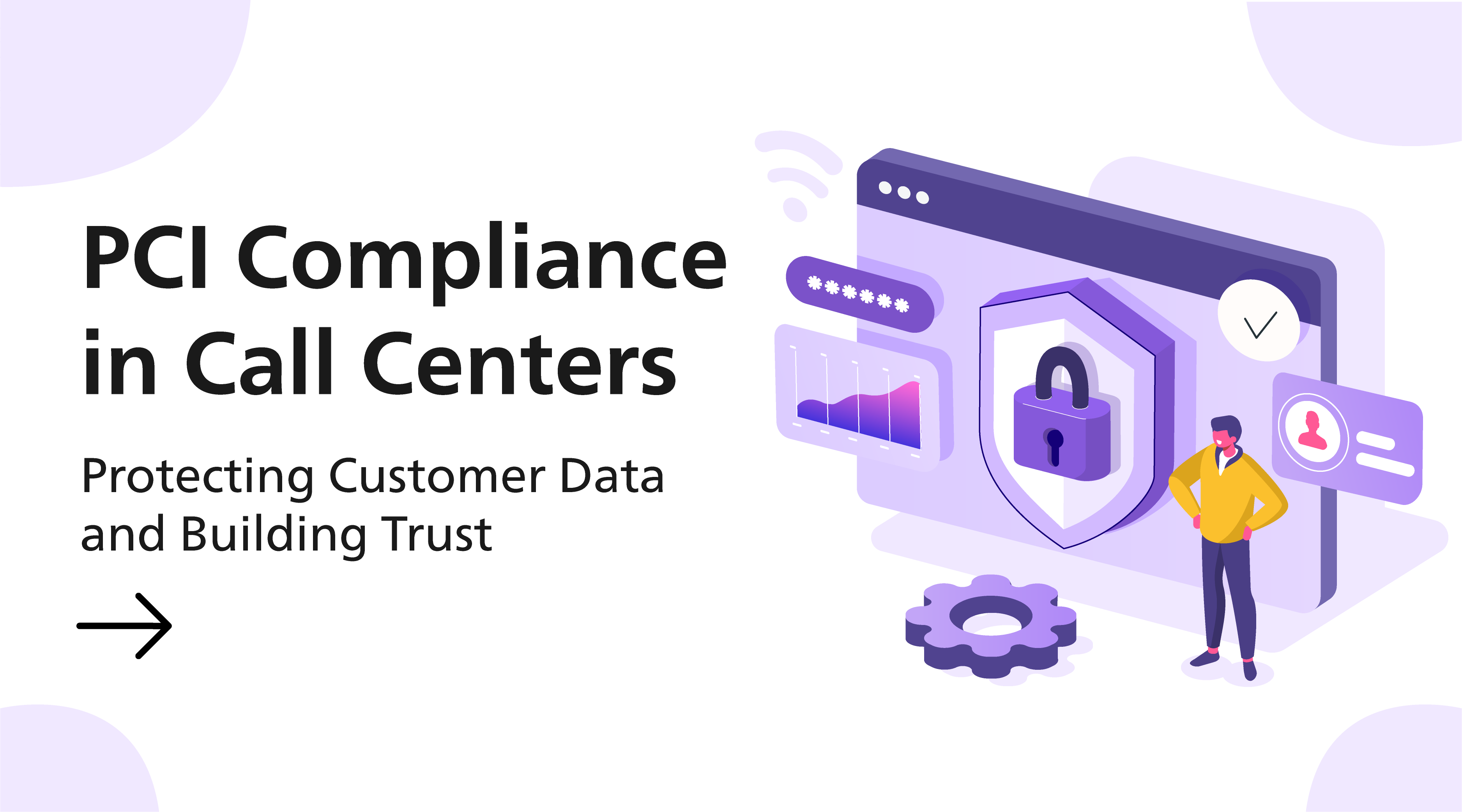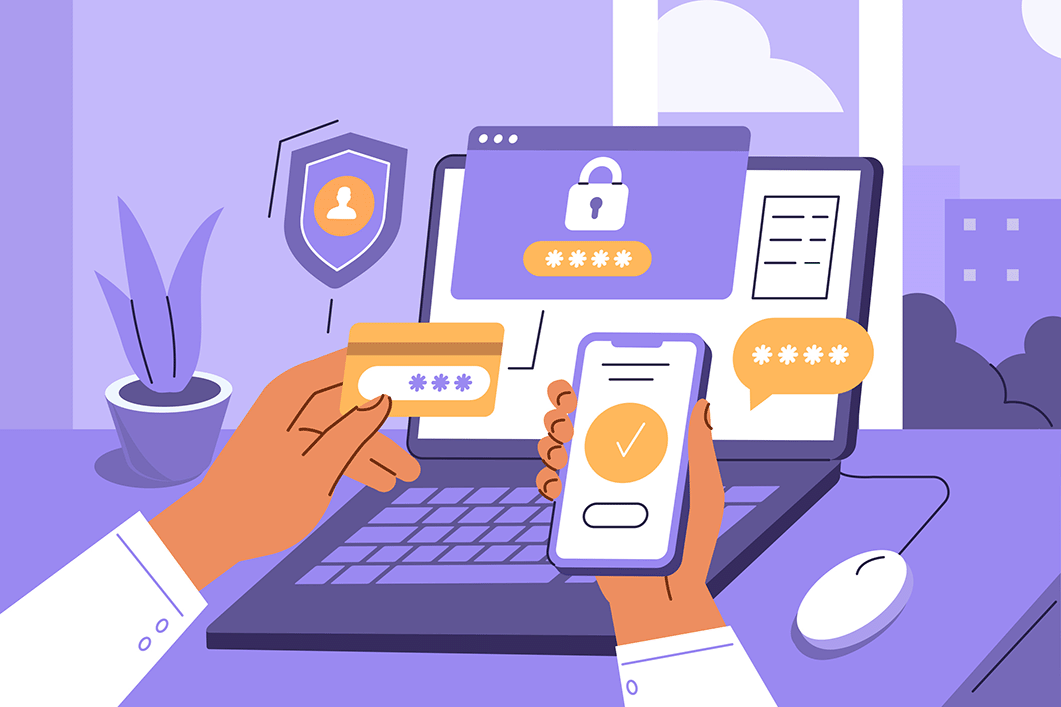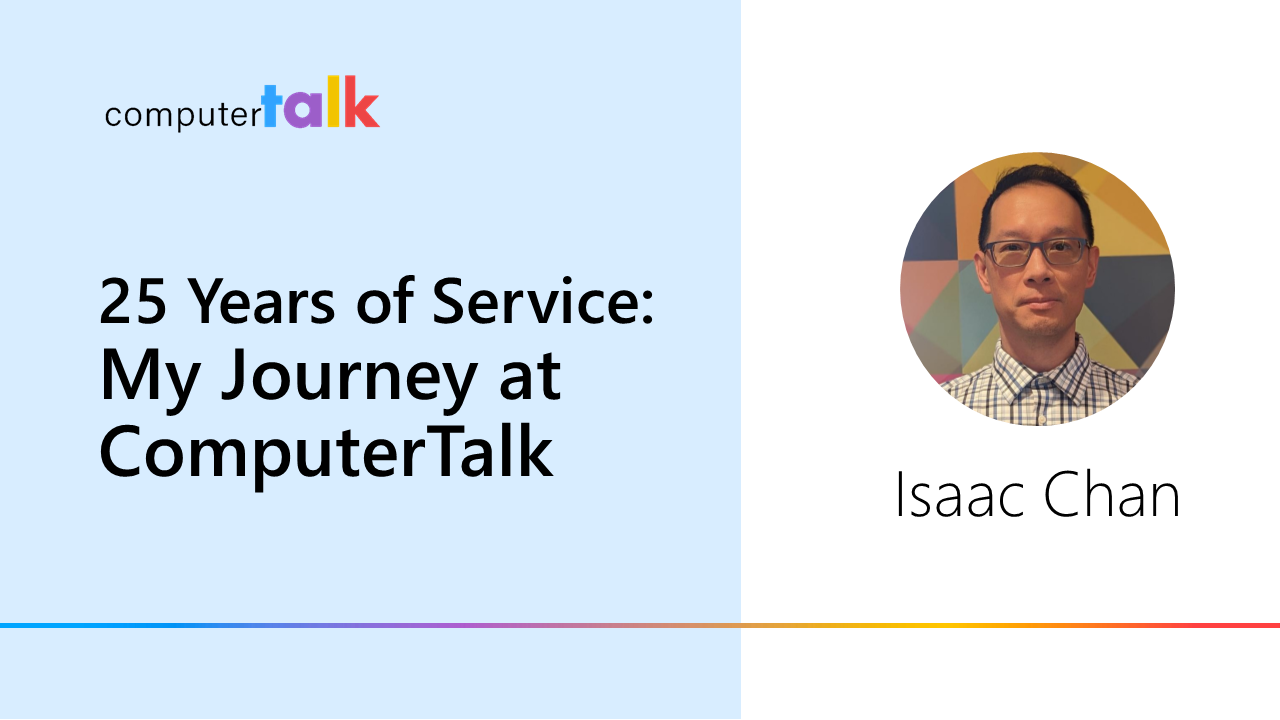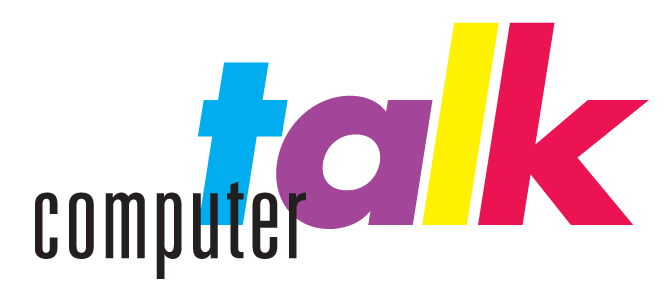PCI Compliance in Call Centers: Protecting Customer Data and Building Trust
by Erina Suzuki | Published On August 7, 2024

Today’s customers expect faster, more efficient, and more convenient experiences when they contact businesses, but they’re not willing to compromise on the security of their data. That’s why it’s so important for organizations to ensure they’re investing in the right approach to making their contact center PCI compliant.
Critical for any contact center collecting cardholder information for transactions, PCI compliance in call centers helps to defend customers against theft and fraud.
Demonstrating a commitment to PCI compliance is essential to protecting your business from significant fines and legal repercussions. Studies show that organizations in breach of Payment Card Industry Data Security Standard (PCI DSS) can be charged between $5,000 and $100,000 per month until they meet regulatory requirements. That’s enough to cripple almost any organization, large or small.
However, PCI compliance in the call center isn’t just key to avoiding fines. It’s how you show your customers that you put their security first and earn their loyalty.
Here’s your guide to ensuring PCI compliance in your call center.
What is PCI Compliance? An Introduction
PCI Compliance is the strategic process companies implement to ensure they adhere to the rules mandated by PCI DSS, or the Payment Card Industry Data Security Standard. This framework aims to ensure that all companies that accept, process, store, and transmit credit card or payment information keep that data secure and protected.
On a broad scale, PCI DSS has six goals, and 12 specific requirements for compliance. The goals are to build and maintain secure networks and systems, protect cardholder data, maintain a vulnerability management program, implement access controls, monitor and test networks, and maintain security policies.
The 12 requirements include:
- Installing and maintaining firewall configurations to protect cardholder data.
- Preventing the use of vendor-supplied defaults for system passwords and security strategies.
- Protecting stored cardholder data via encryption and other security measures.
- Encrypting the transmission of cardholder data across public and open networks.
- Using and regularly updating anti-virus software and programs.
- Developing and maintaining secure applications and systems.
- Restricting access to cardholder data for employees and contractors.
- Assigning unique IDs to each person with computer access.
- Restricting physical access to cardholder data.
- Tracking and monitoring all access to cardholder data and network resources.
- Regularly testing security systems and strategies.
- Maintaining policies that address information security for all personnel.
Why is PCI Compliance in Call Centers Crucial?
Many call centers in virtually every industry handle some form of payment information, from higher education facilities that accept payments for courses, to retail organizations that accept payments over the phone. Implementing PCI compliance measures in call centers is how companies ensure they’re protecting sensitive data from fraud and potential breaches.
Not only is this critical to avoiding serious fines and legal penalties, but it’s crucial to preserving customer trust and confidence. Call centers that handle large volumes of transactions are attractive targets for criminals. Being PCI DSS compliant shows your customers that you are committed to protecting their information from threats.
With a strong approach to PCI compliance, companies can:
- Earn customer trust: Up to 78% of customers say they would stop engaging with a brand online after they suffered a data breach. Implementing PCI compliance strategies means you’re less likely to face serious security issues that could lead to lost customer loyalty. Plus, it helps you build a reputation as a reliable, secure, and trustworthy organization.
- Reduce risk: Data breaches in the call center can be financially devastating for organizations, costing companies millions in lost revenue and fines. PCI compliance significantly reduces the risk of these incidents by enforcing the use of robust security measures. The right strategy can protect you from fines, legal fees, and the cost of complex remediation efforts.
- Gain a competitive advantage: In a competitive landscape, demonstrating PCI compliance can give you a powerful differentiator. It shows your customers that you’re committed to protecting their data and can help you attract security-conscious clients.
Additionally, PCI compliance can help streamline operations by promoting best practices in data management, leading to improved efficiency in the call center. It can even improve your overall data security posture, and ensure you maintain an edge as regulations continue to evolve.

Best Practices for Maintaining PCI Compliance in Call Centers
Maintaining PCI compliance in call centers requires a holistic and strategic approach. Your chances of success hinge on a combination of vigilance, dedication, and the right technology. Here are 6 best practices for maintaining PCI compliance.
1. Leverage the Right Payment Processing Solution
The first and most obvious way to ensure PCI compliance in your call center, is to choose a secure payment processing solution. Innovative technologies like icePay from ComputerTalk are already PCI compliant, giving companies access to an intelligent solution that allows them to accept credit card payments without storing any sensitive cardholder data.
With icePay, agents receive authorization numbers for each transaction completed, generated by the payment service provider. Additionally, the solution supports tokenization, to ensure credit card information isn’t sent over the internet.
Not only does technology like this improve PCI compliance, but it removes the need for expensive training, enhances customer experience, and even enables self-service transaction processing.
2. Limit Access to Credit Card Information
PCI-DSS standards require companies to limit who in their organization has access to credit card data and sensitive information. This means companies need to implement secure access controls to limit which team members can accept and process credit card payments. It also means companies should have automated solutions in place that redact sensitive information from recordings where possible.
Alongside limiting access to sensitive information, call centers should also ensure that any employees who do have permission to handle sensitive data are appropriately trained to minimize security risks. Training team members when to avoid recording specific data, or how to use certain tools to redact data from recordings can be valuable. Regular training is critical to keeping agents updated on frequently changing compliance standards.
3. Implement Continuous Monitoring and Auditing Measures
Maintaining visibility into business processes is crucial to all forms of call center compliance. Continuous monitoring tools help companies track access to cardholder data, monitor network activities, and instantly identify potential risks. With intelligent software, companies can immediately detect any unusual or suspicious activity during conversations, and alert IT leaders when necessary.
Additionally, regular audits can help to ensure compliance with PCI DSS requirements and help identify vulnerabilities before they’re exploited by criminals. Monitoring and auditing processes should include: Real-time logging of all access to sensitive data. Automated alerts for suspicious activities. Regular reviews of logs to identify trends or anomalies. Compliance audits at least annually, if not more frequently, to validate adherence to PCI DSS.
4. Regular Policy Reviews and Updates
Unfortunately, achieving and maintaining PCI compliance isn’t a set-it-and-forget-it process. Companies and call centers are constantly growing, security risks are evolving, and compliance standards are regularly reviewed and updated by regulatory bodies.
This makes regular policy reviews and updates essential to keeping up with new threats and regulatory changes. Business leaders should schedule regular reviews of security policies, particularly after implementing changes to processes, products sold, and customer service strategies.
Incorporating feedback from audits and monitoring activities, and asking for insights from stakeholders across the organization, such as IT, legal, and operational teams, will help drive strategic policy updates and improvements.
5. Incident Response Planning
Even with secure payment processing technologies, and the right policies in place, call centers can still experience security issues. A well-defined incident response plan is often crucial to ensuring teams can rapidly detect, respond to, and mitigate security risks.
- An effective incident response plan should include:
- Clearly identified response team members and their roles.
- Procedures for communication during and after incidents.
- Steps for containment and eradication of the breach.
- Post-incident analysis strategies to identify root causes and prevent future risks.
- Regular drills and simulations to ensure readiness for potential breaches.
6. Vendor Management for Third-Party Service
Providers Many call centers rely on third-party providers for various operations, from companies that offer CCaaS (Contact Center as a Service) platforms, to CRM (Customer Relationship Management) software vendors. Ensuring all of the companies that support your organization also comply with PCI DSS standards is essential to eliminating weak links in your security strategy.
Make sure you conduct your due diligence before engaging with third-party providers, researching their approach to PCI compliance. Incorporate service-level agreements and contracts that account for PCI compliance, and regularly audit vendors to ensure their ongoing compliance.
Practices Call Centers Must Abandon to Be PCI Compliant
Maintaining PCI compliance in call center environments isn’t just a matter of implementing the right processes. Companies also need to ensure they’re eradicating practices that can expose them to security risks. Here are the practices you need to leave behind ensure you are PCI compliant.
Storing Sensitive Cardholder Data
Call centers often collect and store vast volumes of data, but it’s important to ensure you’re not storing sensitive information such as card details if you want to preserve compliance. Storing sensitive cardholder data unnecessarily leads to increased risk in the event of a breach and puts you in direct violation of PCI DSS regulations. Use secure payment processing tools to ensure only the minimum amount of cardholder data from each customer is retained, and make sure all data is encrypted at rest (stored) and in transit (during transport).
Using Default Passwords and Security Settings
As mentioned above, PCI-DSS requires companies to avoid using default passwords and security settings when protecting sensitive data. Security breaches often occur because attackers know how to exploit default, well-documented security configurations. With that in mind, change all default passwords after installing technology, use complex passwords, and use multi-factor authentication when possible.
Allowing Unrestricted Physical Access to Payment Processing Systems
Physical security is a critical aspect of PCI compliance. Allowing unrestricted access to areas where payment processing systems are housed can lead to unauthorized access and data breaches. Implementing strict access controls and leveraging security systems such as cameras and keycard systems to track access will help to improve PCI compliance.
Failing to Regularly Update Anti-Virus and Security Software
Over time, vendors offering anti-virus software and security tools patch and update their systems to respond to emerging threats. If your software is outdated, it leaves your company vulnerable to attacks. With this in mind, call center leaders should ensure they have a strategy in place regularly checking for updates on their software. Make sure your systems are always up to date with the latest security patches.
Ignoring Regular Security Audits and Vulnerability Assessments
It’s difficult to protect your business from threats if you’re not regularly looking for weaknesses in your security posture. Regular audits and vulnerability assessments are essential for pinpointing and potentially mitigating risks. PCI DSS even mandates the use of regular security audits and vulnerability scans to ensure you’re complying with the latest regulations. Make sure you conduct regular audits and assessments, both internally and externally with third-party experts.
Prohibiting Use of Pen and Paper or Mobile Phones to Store Sensitive Data
These days, the use of pen and paper in a call center is becoming less common, but if your employees still record data with a physical notepad, they could be exposing your company to additional risks. Writing down cardholder data can lead to information being mishandled or stolen. Additionally, allowing employees to use mobile devices and their own technology to process transactions means you could be opening the door to additional threats.
Optimize PCI Compliance in the Call Center
As the volumes of data call centers manage continue to grow, and regulatory authorities consistently implement new standards for protecting customer information, maintaining compliance can be complex. Adhering to standards like PCI DSS is crucial for any call center that wants to avoid fines, legal repercussions, and damage to its reputation, but it involves implementing the right strategy.
To ensure compliance, call centers need to prioritize practices like continuous monitoring, incident response planning and diligent vendor management. They need to implement the right technology for processing transactions and eliminate dangerous practices, like storing sensitive data automatically.
Fortunately, technology leaders like ComputerTalk can help organizations improve their PCI compliance strategy, with intelligent solutions for secure payment processing.
Contact ComputerTalk today to learn more about our icePay PCI compliant payment processing technology, or request a demo of our intuitive software.
More from our blog
 I have been working at ComputerTalk for a quarter of a century! I can't count on one hand the events in my life that surpass this milestone.
I have been working at ComputerTalk for a quarter of a century! I can't count on one hand the events in my life that surpass this milestone.
 On Wednesday, April 17, 2024, ComputerTalk presented our latest version of ice Contact Center, ice 13, in our Slice of ice session.
On Wednesday, April 17, 2024, ComputerTalk presented our latest version of ice Contact Center, ice 13, in our Slice of ice session.
 TORONTO, CANADA (PRWEB) MAY 28, 2020
Computer Talk Technology Inc. (“ComputerTalk”) today announces that Direct Routing for ice Contact Center with Microsoft Teams is generally available in our North American cloud sites. This new capability gives customers an alternative to...
TORONTO, CANADA (PRWEB) MAY 28, 2020
Computer Talk Technology Inc. (“ComputerTalk”) today announces that Direct Routing for ice Contact Center with Microsoft Teams is generally available in our North American cloud sites. This new capability gives customers an alternative to...

